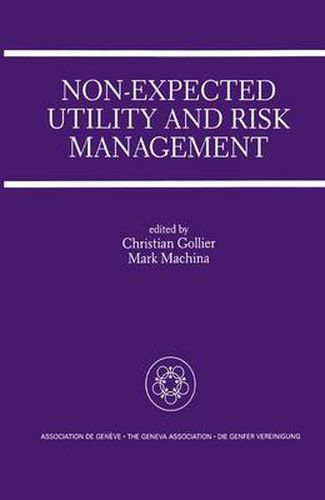Readings Newsletter
Become a Readings Member to make your shopping experience even easier.
Sign in or sign up for free!
You’re not far away from qualifying for FREE standard shipping within Australia
You’ve qualified for FREE standard shipping within Australia
The cart is loading…






This title is printed to order. This book may have been self-published. If so, we cannot guarantee the quality of the content. In the main most books will have gone through the editing process however some may not. We therefore suggest that you be aware of this before ordering this book. If in doubt check either the author or publisher’s details as we are unable to accept any returns unless they are faulty. Please contact us if you have any questions.
Expected utility provides simple, testable properties of the optimum behavior that should be displayed by risk-averse individuals in risky decisions. Simultaneously, given the existence of paradoxes under the expected utility paradigm, expected utility can only be regarded as an approximation of actual behavior. A more realistic model is needed. This is particularly true when treating attitudes toward small probability events: the standard situation for insurable risks.
Non-Expected Utility and Risk Management examines whether the existing results in insurance economics are robust to more general models of behavior under risk.
$9.00 standard shipping within Australia
FREE standard shipping within Australia for orders over $100.00
Express & International shipping calculated at checkout
This title is printed to order. This book may have been self-published. If so, we cannot guarantee the quality of the content. In the main most books will have gone through the editing process however some may not. We therefore suggest that you be aware of this before ordering this book. If in doubt check either the author or publisher’s details as we are unable to accept any returns unless they are faulty. Please contact us if you have any questions.
Expected utility provides simple, testable properties of the optimum behavior that should be displayed by risk-averse individuals in risky decisions. Simultaneously, given the existence of paradoxes under the expected utility paradigm, expected utility can only be regarded as an approximation of actual behavior. A more realistic model is needed. This is particularly true when treating attitudes toward small probability events: the standard situation for insurable risks.
Non-Expected Utility and Risk Management examines whether the existing results in insurance economics are robust to more general models of behavior under risk.